Research Article
Case Report
Issue Reviewers
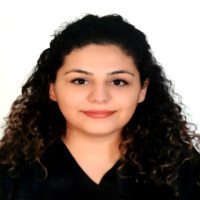






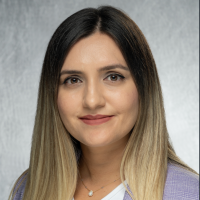

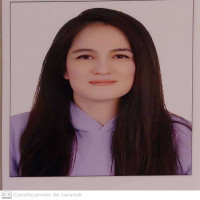

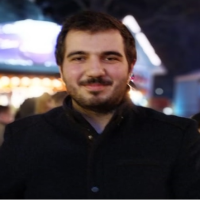

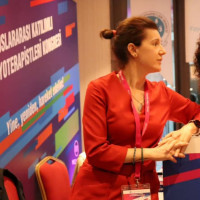
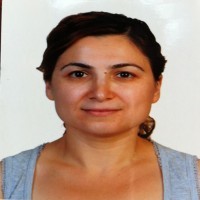
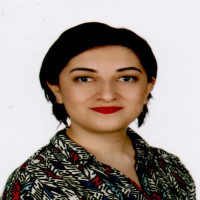


Aim & Scope
Focus
Hacettepe University Faculty of Health Sciences Journal publishes case studies, original research and systematic review studies about Nutrition and Dietetics, Child Development, Language and Speach Therapy, Ergotherapy, Physiothreapy and Rehabilitation, Odiology, Nursing and other fields of health sciences.
Indexes
This journal is indexed in TR-Dizin, SOBIAD and Index Copernicus, and included in DOAJ (Directory of Open Access Journals).
Peer Review Process
Double Blinded Peer Review Policy
- The submissions received from the authors are transferred to the section editors by the chief editor.
- The section editors remove the information of the authors from the article texts before sending them to the reviewers.
- For every submission, three reviewers are assigned. For the submission to get published, two acceptance decision out of three reviewers are required.
- The information of the reviewers is kept confidential.
- The corrections offered by the reviewers are made visible to the authors without revealing the names of the reviewers.
- Up to the end of the review process, information of the authors and the reviewers are not shared.
- Decision process takes approximately 180 days.
Open Access Policy
This journal provides immediate open access to its content on the principle that making research freely available to the public supports a greater global exchange of knowledge for any kind of lawful purpose.
Archiving
This journal is licenced by LOCKSS licence for storing and distributing journal content at participating libraries.
Fee Policy
Hacettepe University Faculty of Health Sciences Journal does not demand any kind of charges for acts of submission, access and evaluation.
Plagiarism Screening Policy
In order to prevent plagiarism cases, the submissions are put in the process of plagiarism control via iThenticate by the section editors. If the estimated rate of plagiarism in an article is above 30 %, that submission is sent back to the authors for readjustments.
Content Licencing
Creative Commons (CC BY) licence which was preffed by Hacettepe University Faculty of Health Sciences offers individuals to distribute, remix or work on the study as long as they citated.
Ethical Approval
All clinical and experimental studuies must be within the lines of international ethical rules.
Hello
Hacettepe University Faculty of Health Sciences Journal publishes case studies, research articles and systematic review articles in the areas of Nutrition and Dietetics, Child Development, Speech and Language Therapy, Occupational Therapy, Physical Therapy and Rehabilitation, Audiology, Nursery and other areas of health sciences. The journal is published triannually: in April, August and December.
Editorial Board
Author Guidelines
Hacettepe University Faculty of Health Sciences Journal is published triannually: in April, August and December. In the journal, case studies, research articles and systematic review articles in the areas of Nutrition and Dietetics, Child Development, Speech and Language Therapy, Occupational Therapy, Physical Therapy and Rehabilitation, Audiology, Nursing and other areas of health sciences are accepted to be reviewed for publication.
Please click here to access the Journal Publishing and Writing rules.
Please click here to access the Journal sample article template.
Please click here to access the Cover Letter sample.
Please click here to access the Tittle Page sample.
Ethical Principles and Publication Policy
In the articles that submitted to our journal, the following issues should be followed under the title of ethical rules.
1. Ethics committee approval must be obtained for studies conducted in all disciplines including social sciences and for studies which are clinical and experimental researches that are done on human and animal requiring ethics committee approval separately, this approval must be specified in the article and documented.
2. In articles, there must be statement that Research and Publication ethics are complied with.
3. In studies requiring ethics committee approval, information about the permit (name of the board, date and number) should be included in the method section and also on the first/last page in the article. In case reports, information about the volunteer informed/consent form being signed should be included in the article.
Researches requiring the Ethical committee approval are as follows:
• Any researches carried out with qualitative or quantitative approaches that require data collection from participants using survey, interview, focus group work, observation, experiment, interview techniques,
• Use of human and animals (including material/data) for experimental or other scientific purposes,
• Clinical researches that conducted on human,
• Clinical researches that conducted on animals,
• Retrospective studies in accordance with the law of protection of personal data,
Also, following issues should be specified:
• Obtaining and specifying the permission of the owners for the use of scales, surveys and photographs belonging to others,
• The copyright regulations are complied with for the ideas and works of art used.
Publication Ethics and Publication Malpractice Statement
Our publication ethics and publication malpractice statement is mainly based on the Code of Conduct and Best-Practice Guidelines for Journal Editors (Committee on Publication Ethics, 2011).
Editors' responsibilities
Publication decisions
The editor in chief and a section editor responsible for deciding which of the papers submitted to the journal will be published. Manuscripts will be evaluated without regard to the authors' race, gender, sexual orientation, religious belief, ethnic origin, citizenship, or political philosophy. The decision will be based on the paper’s importance, originality and clarity, and the study’s validity and its relevance to the journal's scope. Current legal requirements regarding libel, copyright infringement, and plagiarism should also be considered.
Confidentiality
The editor and any editorial staff must not disclose any information about a submitted manuscript to anyone other than the corresponding author, reviewers, potential reviewers, other editorial advisers, and the publisher, as appropriate.
Disclosure and conflicts of interest
Unpublished materials disclosed in a submitted paper will not be used by the editor or the members of the editorial board for their own research purposes without the author's explicit written consent.
Reviewers' responsibilities
Contribution to editorial decisions
The peer-reviewing process assists the editor and the editorial board in making editorial decisions and may also serve the author in improving the paper.
Promptness
Any selected referee who feels unqualified to review the research reported in a manuscript or knows that its prompt review will be impossible should notify the editor and withdraw from the review process.
Confidentiality
Any manuscripts received for review must be treated as confidential documents. They must not be disclosed to or discussed with others except as authorized by the editor.
Standards of objectivity
Reviews should be conducted objectively. Personal criticism of the author is inappropriate. Referees should express their views clearly with supporting arguments.
Acknowledgement of sources
Reviewers should identify cases in which relevant published work referred to in the paper has not been cited in the reference section. They should point out whether observations or arguments derived from other publications are accompanied by the respective source. Reviewers will notify the editor of any substantial similarity or overlap between the manuscript under consideration and any other published paper of which they have personal knowledge.
Disclosure and conflict of interest
Privileged information or ideas obtained through peer review must be kept confidential and not used for personal advantage. Reviewers should not consider manuscripts in which they have conflicts of interest resulting from competitive, collaborative, or other relationships or connections with any of the authors, companies, or institutions associated with the papers.
Authors' duties
Reporting standards
Authors of original research reports should present an accurate account of the work performed as well as an objective discussion of its significance. Underlying data should be represented accurately in the paper. A paper should contain sufficient detail and references to permit others to replicate the work. Fraudulent or knowingly inaccurate statements constitute unethical behavior and are unacceptable.
Data access and retention
Authors could be asked to provide the raw data of their study together with the paper for editorial review and should be prepared to make the data publicly available if practicable. In any event, authors should ensure accessibility of such data to other competent professionals for at least ten years after publication (preferably via an institutional or subject-based data repository or other data center), provided that the confidentiality of the participants can be protected and legal rights concerning proprietary data do not preclude their release.
Originality, plagiarism and acknowledgement of sources
Authors will submit only entirely original works, and will appropriately cite or quote the work and/or words of others. Publications that have been influential in determining the nature of the reported work should also be cited.
Multiple, redundant or concurrent publication
In general, papers describing essentially the same research should not be published in more than one journal. Submitting the same paper to more than one journal constitutes unethical publishing behavior and is unacceptable.
Manuscripts which have been published as copyrighted material elsewhere cannot be submitted. In addition, manuscripts under review by the journal should not be resubmitted to copyrighted publications. However, by submitting a manuscript, the author(s) retain the rights to the published material. In case of publication they permit the use of their work under a CC-BY license [http://creativecommons.org/licenses/by/3.0/], which allows others to copy, distribute and transmit the work as well as to adapt the work and to make commercial use of it.
Authorship of the paper
Authorship should be limited to those who have made a significant contribution to the conception, design, execution, or interpretation of the reported study. All those who have made significant contributions should be listed as co-authors.
The corresponding author ensures that all contributing co-authors and no uninvolved persons are included in the author list. The corresponding author will also verify that all co-authors have approved the final version of the paper and have agreed to its submission for publication.
Disclosure and conflicts of interest
All authors should include a statement disclosing any financial or other substantive conflicts of interest that may be construed to influence the results or interpretation of their manuscript. All sources of financial support for the project should be disclosed.
Fundamental errors in published works
When an author discovers a significant error or inaccuracy in his/her own published work, it is the author’s obligation to promptly notify the journal editor or publisher and to cooperate with the editor to retract or correct the paper in form of an erratum.
References
Committee on Publication Ethics (COPE). (2011, March 7). Code of Conduct and Best-Practice Guidelines for Journal Editors. Retrieved from http://publicationethics.org/files/Code_of_conduct_for_journal_editors_Mar11.pdf
Peer Review Policy
All published articles in the Journal undergo rigorous peer review processes based on initial editorial screening and then by anonymized refereeing by the referee. The ultimate purpose of peer review is to sustain the originality and quality of research work and filtration of poor quality and plagiarized articles. Peer review assures research quality.
Peer Review Policy
The practice of peer review is to ensure that only good work is published. Our reviewers therefore play a vital role in maintaining the high standards of the Journal and all manuscripts are peer reviewed following the procedure outlined below.
Initial manuscript evaluation
The Editor-in-Chief first screen all manuscripts along with a technical editor and a section editor in the Editorial Board. Those rejected at this stage are insufficiently original, have serious scientific flaws, have poor grammar, or English language, or are outside the aims and scope of the journal. Those that meet the minimum criteria are passed on to experts for review. Authors of manuscripts rejected at this stage are informed within 2 weeks of receipt of manuscript.
Type of Peer Review
The Journal uses double-blind peer review: Reviewers are unaware of the identity of the authors, and authors are also unaware of the identity of reviewers.
How the reviewer is selected
Reviewers are matched to the paper according to their expertise. Our reviewer database contains reviewer contact details together with their subject areas of interest, and this is constantly being updated.
Reviewer reports
Reviewers are asked to evaluate whether the manuscript:
Is original
Is methodologically sound
Follows appropriate ethical guidelines
Has results which are clearly presented and support the conclusions
Correctly referenced previous relevant work
Reviewers are not expected to correct or copyedit manuscripts. Language correction is not part of the peer review process.
How long does the peer review process take?
Typically, the manuscript is reviewed within 2-8 weeks of submission to the reviewer. Revised manuscripts are usually returned to the Editor-in-Chief within 3 weeks and the Editor-in-Chief may request further advices at this time.
Final report
Reviewers advise the Subject Editor and the Editor-in-Chief, who are responsible for the final decision to revise, accept or reject the article. A decision to revise, accept or reject the manuscript is sent to the author along with any recommendations made by the reviewers, and may include verbatim comments by the reviewers. The Editor-in-Chief may request the authors for more than one revision of a manuscript.
Editor-in-Chief's Decision is final.
Price Policy
Hacettepe Üniversitesi Sağlık Bilimleri Fakültesi Dergisi; makale gönderimi, makalelere ulaşım ve değerlendirme eylemleri hususunda hiçbir ücret talep etmemektedir.
Hacettepe University Faculty of Health Sciences Journal does not demand any kind of charges for acts of submission, access and evaluation.






